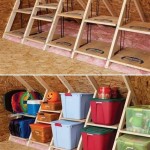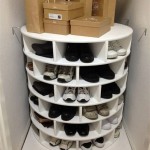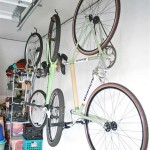How Do I Know What Size Storage Unit I Need?
Determining the appropriate storage unit size is crucial for efficient storage and cost optimization. Here are some key factors to consider when choosing the right size:
1. Determine Your Storage Needs
Start by assessing the volume of items you need to store. Make a detailed inventory of every object, including furniture, appliances, boxes, and personal belongings. Measure or estimate the dimensions of each item to calculate the total cubic footage you require.
2. Consider Access Needs
Think about how often you'll need to access your belongings in storage. If you frequently need to retrieve items, choose a unit that's easily accessible and allows for convenient movement within the space. Consider the width of the aisles and the height of the ceiling.
3. Maximize Vertical Space
Don't limit yourself to floor space; make use of vertical space by stacking items or using shelves. This can significantly increase the amount of storage you can fit into a smaller unit. Consider investing in vertical storage solutions like stackable bins or collapsible shelves.
4. Protect Valuable Items
If you have valuable or delicate belongings, ensure they're well-protected within your storage unit. Choose a climate-controlled unit to prevent damage from extreme temperatures and humidity. Consider investing in protective covers, bubble wrap, or acid-free boxes for sensitive items.
5. Consider Future Needs
Think about your storage needs in the long term. If you anticipate accumulating more items in the future, opt for a slightly larger unit to avoid having to upgrade later on. It's generally more cost-effective to secure a spacious unit from the start rather than repeatedly moving your belongings to larger units.
6. Seek Professional Advice
If you're unsure about the appropriate size, don't hesitate to consult a storage facility staff member. They can provide you with expert advice and help you determine the optimal unit for your specific requirements.
7. Estimate Costs
Consider the overall cost of storage, including rental fees, insurance, and any additional services required. Determine the monthly or annual cost of various unit sizes and choose the option that balances your storage needs with your budget.
Conclusion
Choosing the right storage unit size is key to efficient and cost-effective storage. By assessing your needs, considering access requirements, maximizing space, protecting valuables, anticipating future needs, seeking professional advice, and estimating costs, you can make an informed decision and find the perfect unit for your belongings.

What Size Storage Unit Do I Need Patterson S Self

What Size Storage Unit Should I Get American Patriot Self

What Size Self Storage Unit Should I Get Honore Blog
How To Estimate The Storage Unit Size You Need Move Org

Self Storage Unit Sizes Monthly Al S In Ann Arbor

Size Guide Storage Master

Storage Unit Sizes Recommendations Self Units Organization

Storage Unit Sizing Dimensions For Dewey Ave Self

How To Choose The Right Sized Storage Unit For Your Needs 10 Mini

What Size Storage Unit Do I Need Ez
Related Posts








